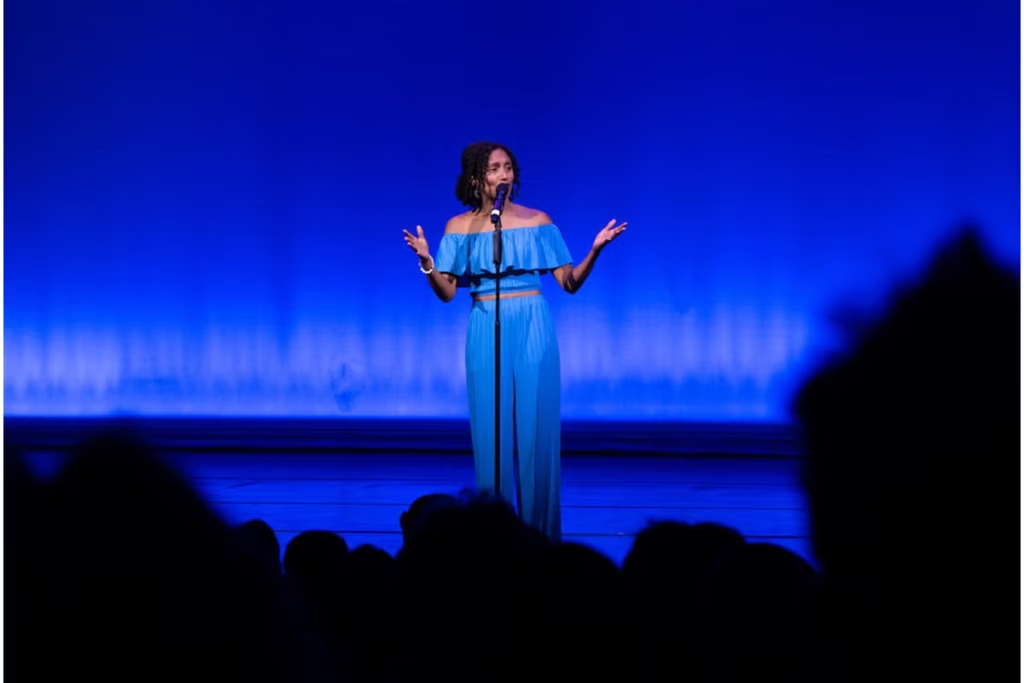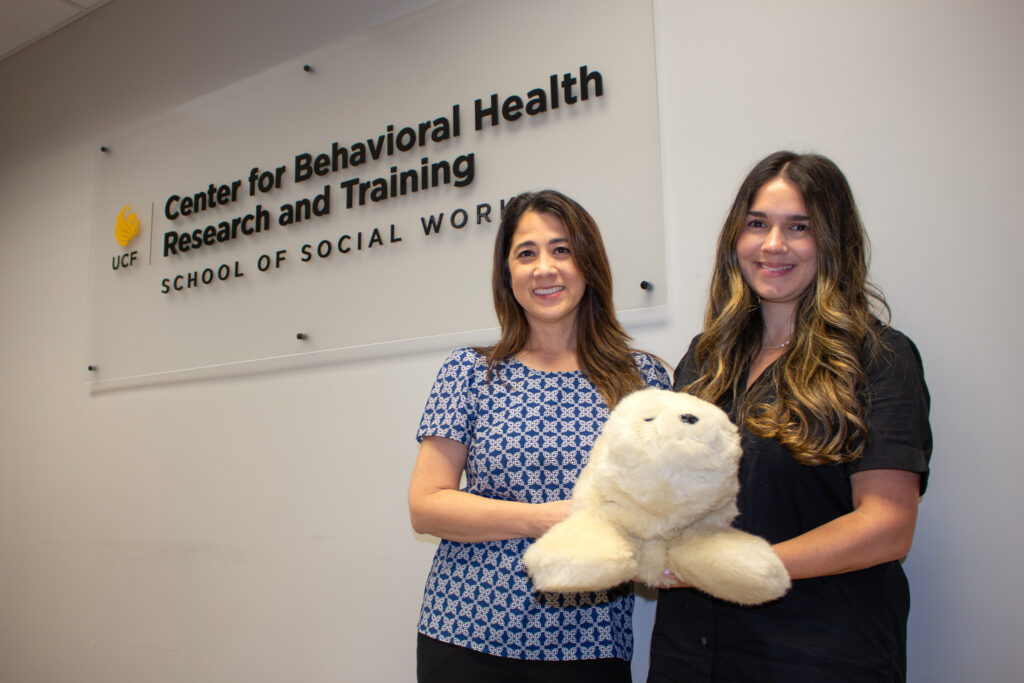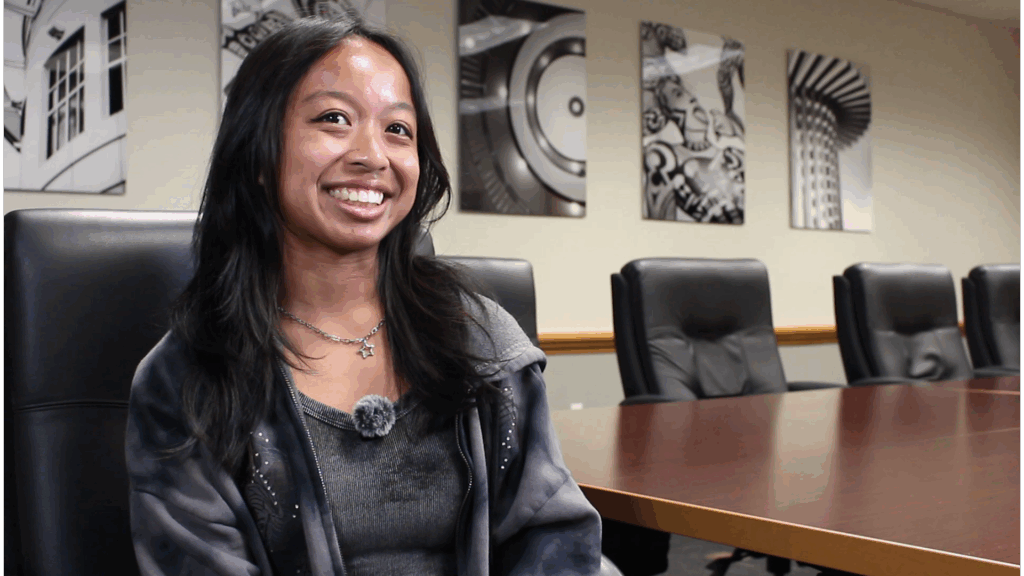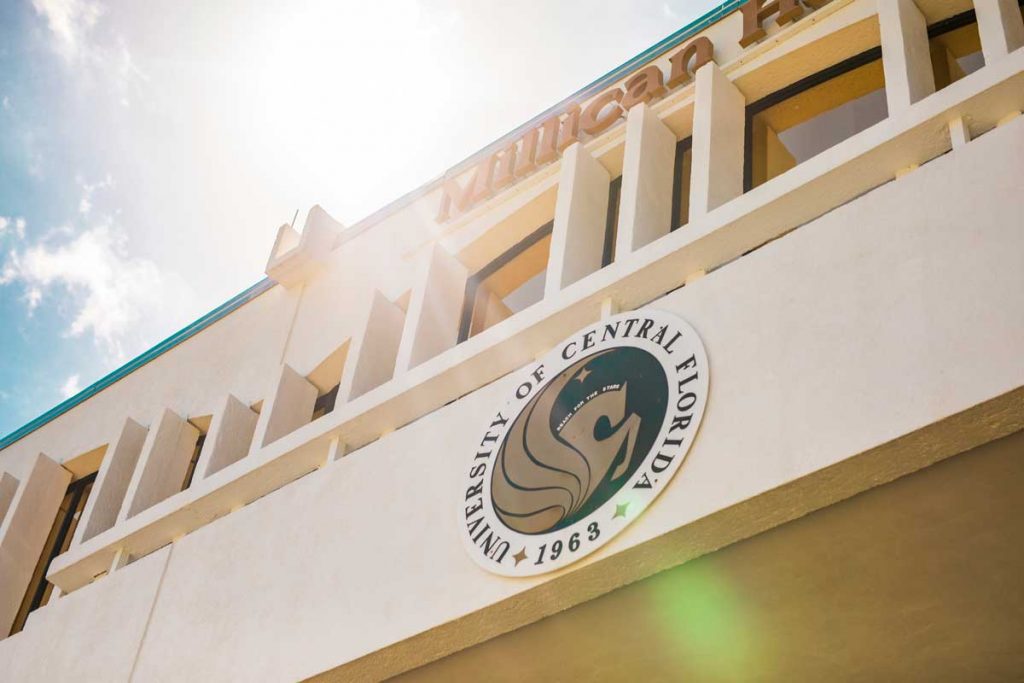Each year, intimate partner violence affects more than 12 million people, according to the National Domestic Violence Hotline. Social work graduate student Lana Kiswani is working to change that statistic by building a stronger, more sensitive support system for domestic violence survivors through her field experience with Survivor Link. Survivor Link, an AmeriCorps program, equips community members, agencies, professionals, and students like Kiswani with the tools and knowledge to deliver trauma-informed care to those in need. The UCF School of Social Work first joined the national training program in 2022. Students who participate receive a stipend and an educational award.
Kiswani is one of 12 MSW students from UCF participating in this year’s Survivor Link cohort. The students complete a “train the trainer” program which prepares them to provide domestic violence awareness instruction to other groups, as well as complete community service projects and volunteer hours. Kiswani served with HOPE Helps, a Central Florida non-profit focused on preventing hunger and homelessness and improving services for domestic violence survivors. During her internship at HOPE Helps, Kiswani conducted three training sessions for social workers, case managers, administration staff and volunteers. “As a trainer, I provided the basics of what domestic violence is, how to better serve domestic violence survivors, and how to better attend to their needs,” explains Kiswani.
“The students are gaining critical knowledge for their future social work careers while dispersing key information to people who come in contact with intimate partner violence (IPV) survivors every day,” says Bethany Backes, Associate Professor in the School of Social Work, Director of the UCF Violence Against Women Faculty Cluster, and one of three liaisons at UCF for the Survivor Link program. “The program is also skill building as these students gain confidence in public speaking and facilitation. We are fortunate for this partnership with other social work programs across the country.”
This experience has been instrumental in shaping Kiswani’s path toward becoming a trauma-informed therapist. “What impacted me the most is to learn firsthand what survivors go through, and how to really be sensitive and empathetic for them to make sure that you’re not retraumatizing them,” reflects Kiswani.
In addition to her training efforts, Kiswani participated in several community drives organized through Survivor Link, including a feminine product drive that collected over 1,000 hygiene products. “We took those donations and distributed them to organizations and shelters that mainly work with domestic violence survivors,” says Kiswani. During the holidays, she also helped provide toys for kids, hot meals for families, and door decorations that included resource guides for survivors as part of the “It Takes Courage” campaign.
By equipping future social workers with the skills and knowledge to support survivors, the Survivor Link program plays a critical role in addressing the far-reaching effects of intimate partner violence. “This program is valuable not only to the MSW students, but to the larger community,” Backes says. “One in four women and one in nine men will experience intimate partner violence over their lifetime. There are complex impacts from IPV related to physical and mental health and economic and housing stability – not to mention the large impacts on children exposed to IPV in the home.”
Kiswani credits the field experience for providing her with a better understanding of what this community needs. “This program is valuable because it does really provide you with the information that you need to be able to serve survivors of domestic violence, to understand the signs of domestic violence, to understand how to address it, and how to be more empathetic and sensitive in the practice,” says Kiswani.
Field education is required for students completing a degree in social work, with 1,000 hours required for clinical MSW students like Kiswani. The School of Social Work offers a diverse and robust field experience program, partnering with more than 850 agencies in both the U.S. and overseas to provide sites for students to complete their required hours.
Kiswani’s journey at Survivor Link is highlighted on the latest episode of Knight Life @UCF CHPS. The series showcases students’ unique experiences in internships, research, study abroad programs, specialized courses, student organizations and other high-impact opportunities that prepare them for their careers.







